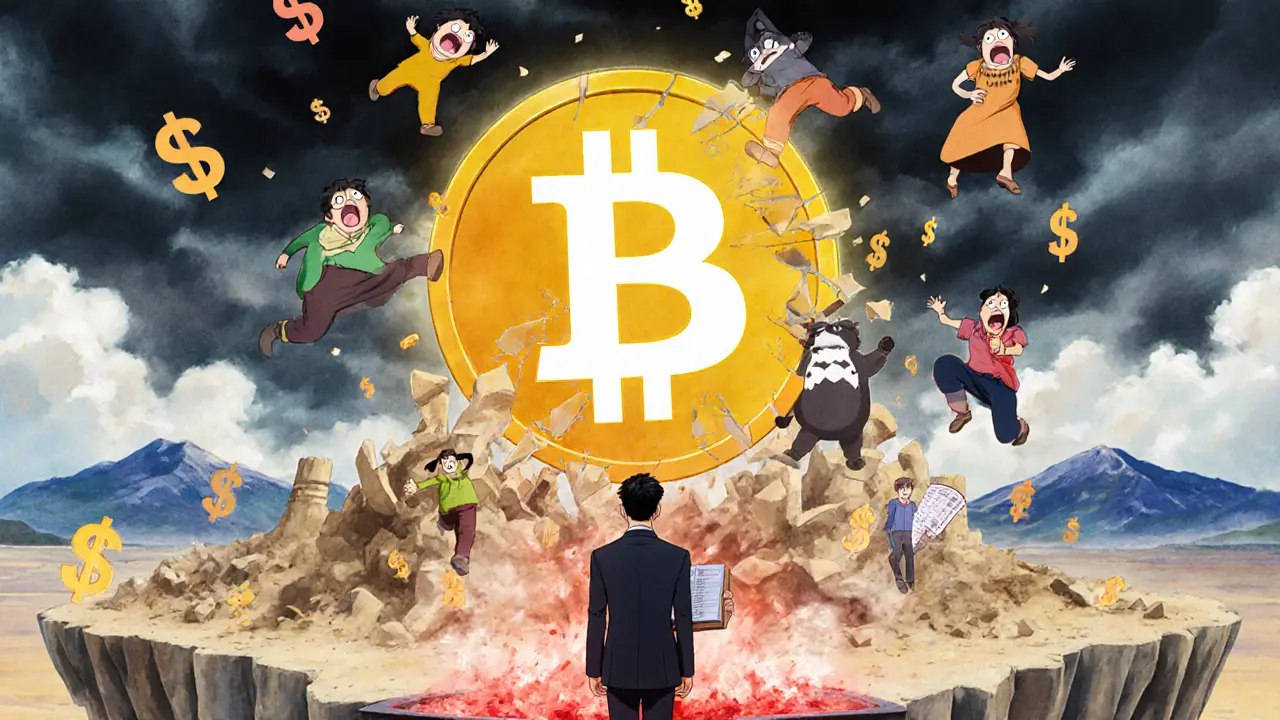SEC vs Crypto: What the Regulation War Really Means for You
When you hear SEC vs crypto, the U.S. Securities and Exchange Commission’s aggressive stance on digital assets. Also known as crypto regulation crackdown, it's not just legal jargon—it’s a power shift that’s reshaping who can trade, what coins are allowed, and where your money is safe. This isn’t about banning Bitcoin. It’s about control. The SEC claims most cryptocurrencies are unregistered securities, and they’ve been filing lawsuits like it’s a job. They’ve gone after exchanges like Binance and Coinbase, token projects like Ripple, and even DeFi protocols that never asked for permission to exist.
Behind every lawsuit is a pattern: the SEC targets platforms that let users earn interest, trade tokens without KYC, or stake assets like stocks. That’s why you see reviews of exchanges like Karatbit, a gold-backed platform flagged as high-risk by regulators, or MorCrypto, a niche exchange under scrutiny for unclear compliance. These aren’t random picks—they’re test cases. The SEC isn’t just going after big names; it’s testing how far it can stretch old securities laws onto new tech. And it’s working. Exchanges are pulling U.S. users, tokens are delisted, and even airdrops like FARA airdrop, a GameFi token giveaway that could be seen as an unregistered offering are now risky.
But here’s the twist: the U.S. isn’t alone. Countries like Pakistan are now crypto mining regulations, formalizing rules to turn energy surplus into revenue, while Morocco and Costa Rica let people use crypto anyway—because the ban doesn’t stop demand. The SEC can’t stop people from using crypto, but it can make it harder, more expensive, and less transparent. That’s why you’ll find guides here on how to legally reduce crypto taxes by moving abroad, or how DAOs handle voting without SEC approval. These aren’t loopholes—they’re adaptations.
What’s left for you? If you’re trading on a U.S.-based exchange, you’re already in the crosshairs. If you’re holding tokens tied to profit-sharing, staking rewards, or governance rights, the SEC likely sees them as securities. The tools you use—whether it’s a DEX like PancakeSwap v2 or a white-label platform like HollaEx—don’t matter if the underlying asset is classified as a security. The only thing that changes is how fast they come for you.
Below, you’ll find real reviews, deep dives, and case studies from the frontlines of this war. No fluff. No guesses. Just what’s happening, who’s getting targeted, and what you need to know before your next trade.
SEC Crypto Enforcement: How $4.68 Billion in Fines Changed the Game
The SEC fined crypto firms $4.68 billion in 2024 - mostly from one case. But by 2025, they dropped major lawsuits and shifted focus to fraud. Here's what changed and what it means for crypto investors and builders.





